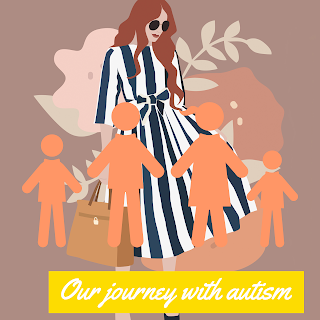As the mother of a young boy with Autism Spectrum Disorder (ASD), other parents often ask me about my experience. They want to know how I got through it and more importantly, how my son is doing now. We’ve been at it for 9 years and I’m glad to say he’s doing ok not the best as I expected. We’re proud of him, and ourselves, for the progress we’ve made in this journey together.
Our son is a elementary student a brother, uncle , cousin, and grandson. I’m happy to say he has our support. He’s a busy boy, everyone is his friend, sometimes sports fan. Love 💕 to dance 🕺
Toward the end of Pre K elementary school, we got his diagnosis of ASD. Throughout, there were therapies and programs, and curricula, and evaluations and Individual Education Plans (IEPs) galore. We knew all the special educators back in Ohio, many of the doctors, and even some of the nurses, and we have a box full of records documenting all of it.
Without our little families like ours – because no one talked about autism then – we did everything we could to help our son learn and grow and participate in activities, like other kids. First flag football did not work out. Even In with our high-fictional son the endless measuring of relative progress – his and ours – felt painful as we came up every year after year with autism ADHD anxiety medication struggles. Mostly we felt alone in our struggle, and scared about the future. There is no resources or research to help us know what to anticipate next, or even what to realistically hope for.
Our son’s timeline and milestones have been different from others’, but make no mistake, am going to do what ever it takes to help moving forward in his life. We’re proud of him – especially proud of who he is. Like many other.



















